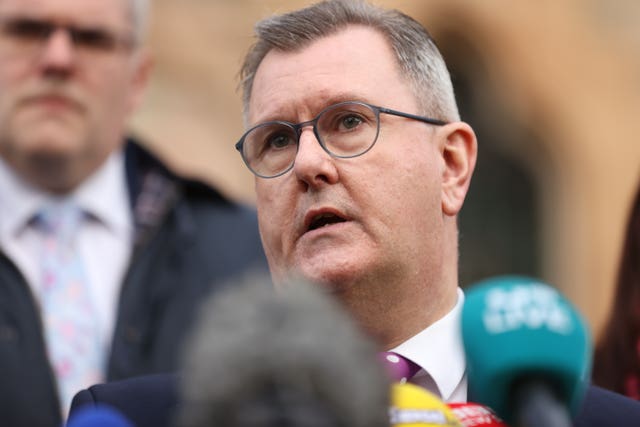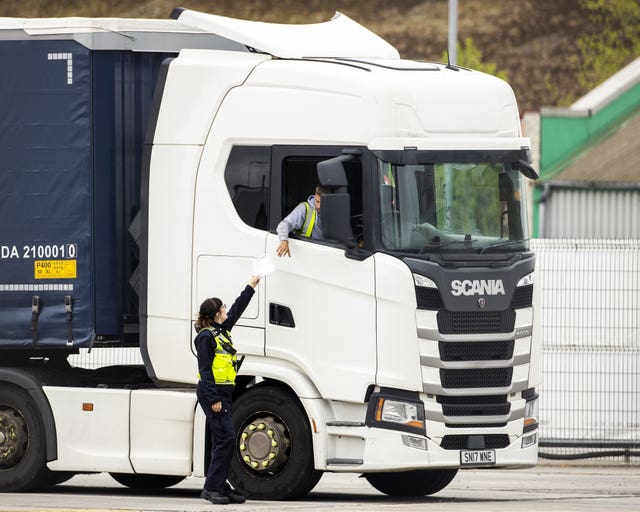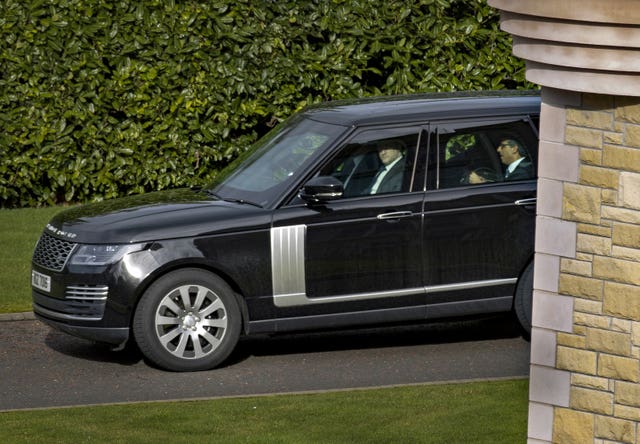Speculation is intensifying that the UK is poised to strike a deal with the EU to amend the contentious Northern Ireland Protocol.
Here are answers to some of the main questions about the Irish Sea trading arrangements.
– What is the Northern Ireland Protocol?
Jointly agreed by the UK and EU, it was the part of the Brexit Withdrawal Agreement that dealt with the main obstacle in the divorce talks – the Irish land border.
To keep the border free flowing, London and Brussels essentially moved new regulatory and customs checks required by Brexit to the Irish Sea.

There were some sporadic outbreaks of violence linked to the protocol following its introduction in January 2021, but they were not widespread or sustained.
– How is the protocol linked to the political impasse at Stormont?
The powersharing institutions can only function with the co-operation of the largest nationalist party and largest unionist party.
The DUP has used its veto to bring down devolution in protest at the protocol.
Its boycott means a ministerial executive cannot function and the legislative assembly cannot conduct any business.
In the absence of ministers, civil servants are in charge of running public services but they are hamstrung in the decisions they can take and many laws and policy changes are unable to be progressed due to the political vacuum.
The DUP has made it clear it will only go back into devolved government if significant changes are delivered on the protocol.

The Government initially hailed the protocol as the breakthrough that “got Brexit done”, and then portrayed early trade disruption as “teething problems”.
However, former prime minister Boris Johnson began to change his public stance on the protocol soon after it became operational.
His government subsequently claimed the protocol had upset the Good Friday peace agreement’s “delicate balance” of unionist and nationalist aspirations by undermining the east/west trade dynamic.
Relations between the EU and UK deteriorated sharply thereafter, with Brussels taking legal action against the UK for failing to honour its obligations under the protocol.
Stop-start negotiations between the UK and the European Commission rumbled on with little sign of progress and ill-feeling between London and Brussels increased when the Government tabled legislation at Westminster – the Northern Ireland Protocol Bill – that would have empowered ministers to unilaterally scrap the protocol without the EU’s consent.
Pursuing such action, Brussels warned, would have been likely to prompt retaliatory action, triggering fears of a trade war.
However, the dynamic between the UK and EU appears to have improved markedly since Rishi Sunak entered No 10.
The Prime Minister has appeared more inclined to secure a negotiated settlement with the EU and he paused progress of the Protocol Bill as officials resumed intensive talks aimed at getting an agreed solution.

Both the EU and UK are in broad agreement on the need to differentiate between GB goods whose end destination is Northern Ireland, and those that are set for onward transportation into the EU single market via the unchecked land border with the Republic of Ireland.
It seems a deal would include the creation of so-called green and red lanes. NI-bound goods would enter ports via the green lane and would be subject to a much-reduced burden of paperwork. Those products destined for the Republic of Ireland would have to comply with the full extent of protocol checks.
– Are there any potential sticking points?
The oversight role of the European Court of Justice (ECJ) could prove the main stumbling block.
While the protocol has created a trade barrier on GB/NI trade it also offers Northern Ireland traders dual market access to sell freely both within the UK internal market and into the EU single market. Advocates of the protocol insist the economic advantage created by this access must be retained in any deal.
Access to the single market is possible because, under the protocol, Northern Ireland essentially remains within the single market for goods. But, as such, the ECJ remains the final arbitrator of EU law issues in the region.
This issue is less about trade and more about sovereignty, with senior DUP figures and Eurosceptic Tory backbenchers in the European Research Group (ERG) vocal in their opposition to the continuation of EU law in Northern Ireland, especially when Stormont MLAs have no power to set or change those laws.
Any deal may seek to downplay the role of the ECJ, with an emphasis on the role of Northern Ireland courts in resolving the vast majority of trade disputes.
Whether that would be enough to convince the DUP and ERG to accept a deal remains to be seen.






